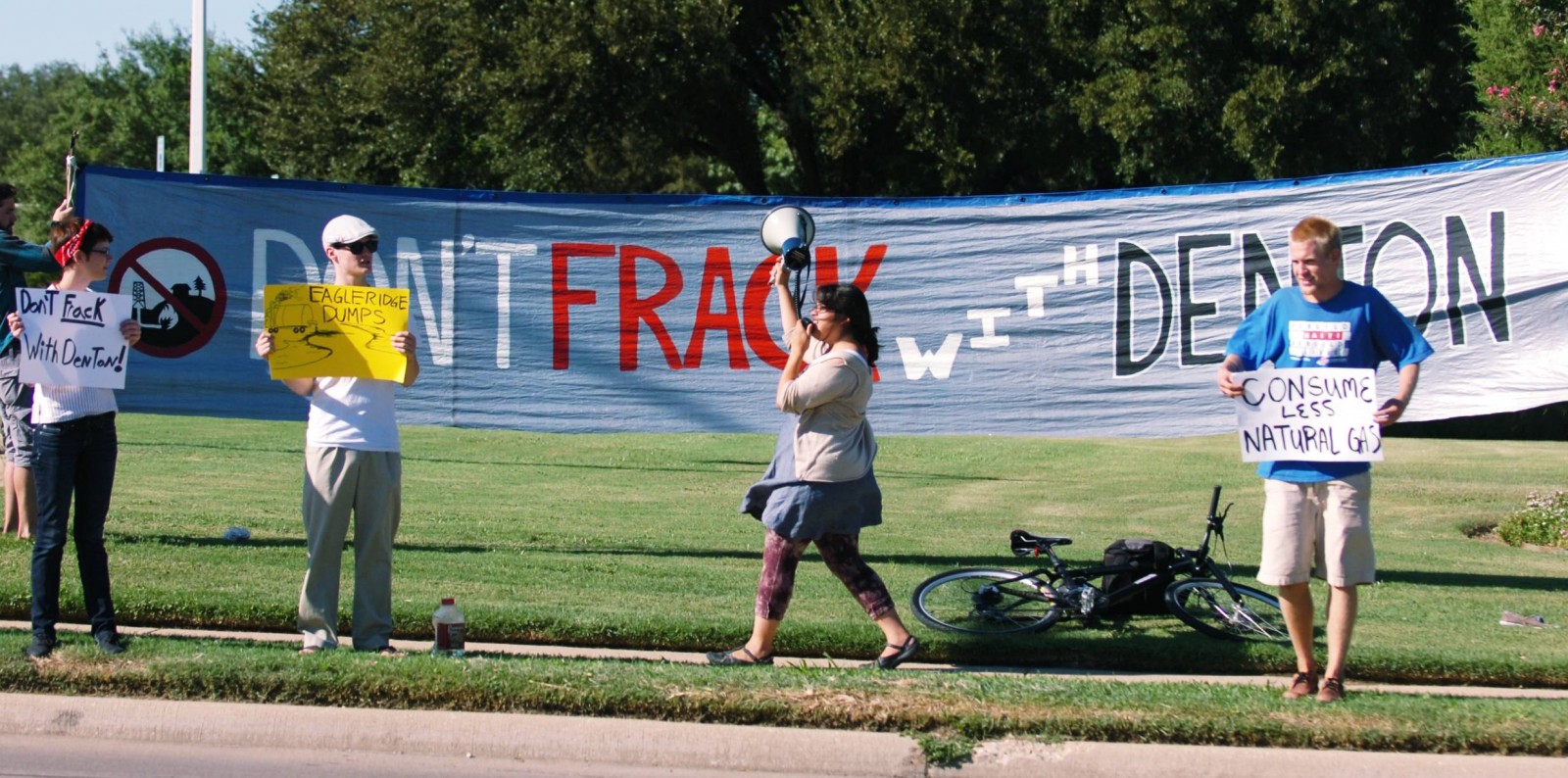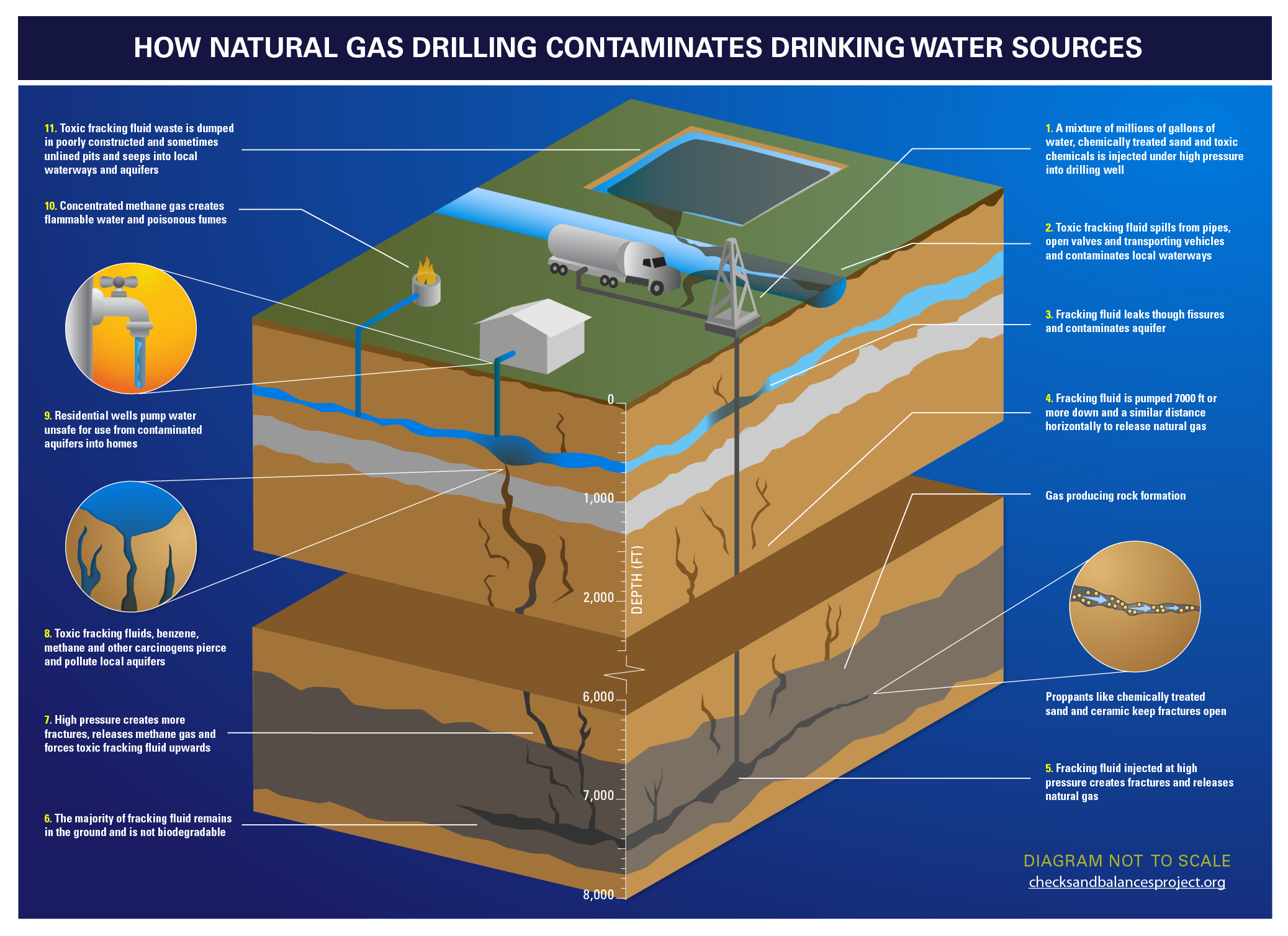
Eagleridge Inc. Chief Operations Officer Mark Grawe brought an armed cop with him to a November 13 Homeowners Association meeting in Mansfield, a suburb of Fort Worth, Tex., and told residents that anyone who protested his company's gas wells — some of which are located less than 200 feet from homes, schools and playgrounds — would find themselves on Department of Homeland Security terrorist watch lists.
Though “terrorism” is understood to mean the use of violence and intimidation for political coercion, Grawe showed no sense of irony bringing a guard armed with a gun, a taser and a can of pepper spray to a neighborhood meeting to help deliver his pro-fracking message.
It’s unclear whether Grawe’s statements were off-the-cuff errors or part of a deliberate strategy. The remarks certainly aren't winning him PR victories, as the response from a blogger with the Drilling Awareness Group (DAG), based in Denton, Tex., makes clear.
The DAG blogger asserts, indignantly, that citizens opposing fracking wells in their back yards “are not radicals” and do not break the law for holding their beliefs. The odd insinuation here, of course, is that so-called “radicals” who do break the law are deserving of the terrorist label, even though the rapidly growing nationwide movement against fracking has been almost entirely peaceful.
Grawe seems to be operating straight out of the frack industry playbook. In a document leaked earlier this year, one of the largest corporate intelligence firms, Stratfor, laid out a strategy for defeating public opposition to petrochemical infrastructure. Stratfor categorizes activists as “radicals,” “idealists,” “realists,” and “opportunists.”
Stratfor analysts define their “realists” as willing to “live with trade-offs” and “work within the system.” In that sense, the Drilling Awareness Group would be labeled “realists”: they want to regulate fracking, not ban it.
According to Stratfor, "realists" should be given highest priority attention because they are more likely to capitulate than radicals. The strategy, as stated by the firm, is to “isolate the radicals” and “co-opt the realists into agreeing with industry.”
This dynamic has been evident in Denton’s ongoing public debate over fracking. Adam Briggle, a philosophy professor and DAG’s most vocal member, wrote a Slate article in which he essentially agreed with industry that the economic benefits of fracking outweighed the health and environmental costs – while gently overlooking the fact that the people getting poisoned aren’t the same ones who are getting paid.
In the article, Briggle separated himself from the University of North Texas students who disrupted city council by reading “a short story featuring Denton citizens besieged by a greedy corporate Grinch,” who have “equated fracking with terrorism” and who “donned a mask to personify death and thanked the city council for allowing fracking to claim more souls for the underworld.”
According to some of the students, Briggle has repeatedly berated them and other Denton fracktivists for being impolite to city council, even suggesting that their emotional testimonies were partly to blame for the council’s inaction on decisions.
A more likely explanation might be the council’s ties to industry. One of its members, James King, receives money from more than a half-dozen gas leases, such as this well on his father’s land.
“Why should we be polite to city council?” asked UNT student Jonathan Adams. “For years, we’ve been asking city council to do something to protect Denton from being terrorized by fracking companies, and here we are: 463 frack sites within city limits, and more on the way.”
Adams is a member of Blackland Prairie Rising Tide, a group that is unequivocally opposed to fracking and advocates using direct action to prevent it — even if that means breaking the law.
“Mark Grawe and Eagleridge are the ones terrorizing our community by spewing noxious fumes and poisoning our water. They just throw around the 'terrorist' label to scare away people who might otherwise support direct action, which is the only real threat to their toxic business plan,” said Adams.
DAG remains committed to working within the system and pressing for increased regulation. Despite reverence for historical acts of civil disobedience, the stigma against law-breaking in U.S. society remains strong. With the added threat of being labeled terrorists, Adams said he is concerned that DAG won’t only avoid direct action – but will publicly disown activists who are willing to break the law.
Meanwhile, little has been done to punish fracking companies for breaking regulations which already exist. When Grawe’s company, Eagleridge, was caught dumping fracking wastewater into a waterway flowing into Denton’s water supply, it was fined a total of $1,875 by the Texas Railroad Commission. In April 2013, Eagleridge waited nine hours before reporting a dangerous blowout which sent a benzene plume into a Denton neighborhood, and received no formal reprimand.

3 WAYS TO SHOW YOUR SUPPORT
- Log in to post comments
















